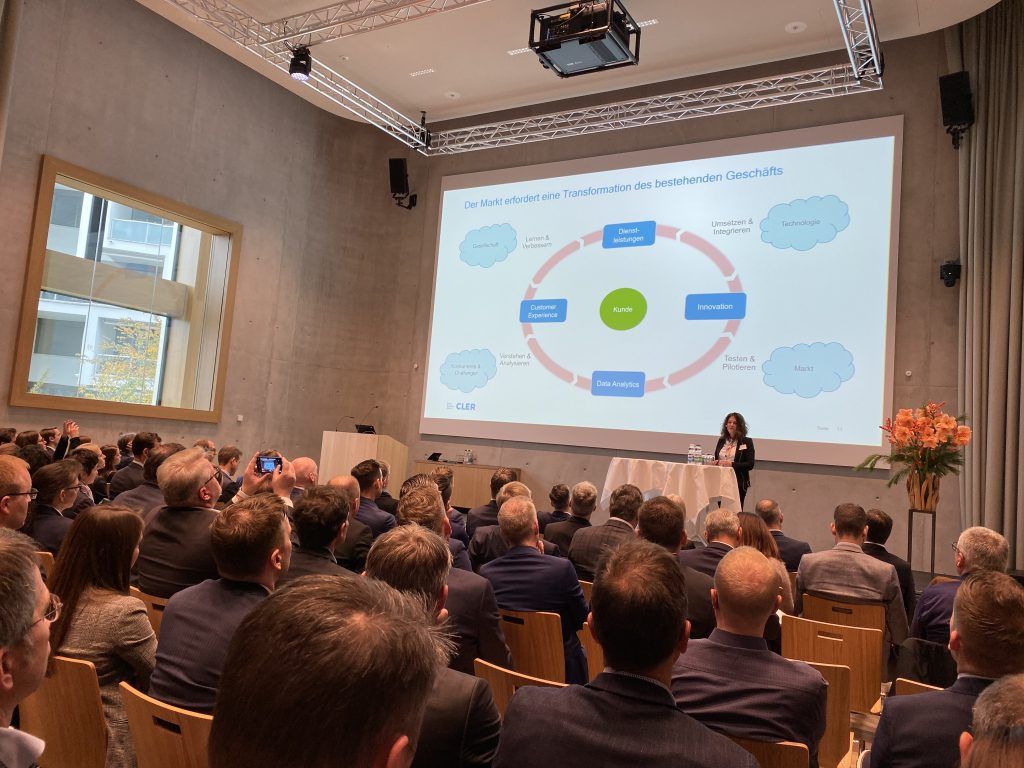Namics at the Retail Banking Conference 2019 in Switzerland
Roman Zollet from Namics explains what's new in the banking industry
After the HSLU had invited to the topic "Innovations in Banking" in June of this year (we were there, too, here the report), the annual (sold out) Retail Banking Conference was on the agenda today. Here is our live blogged summary.

The IFZ Retail Banking Study 2019
The host Andreas Dietrich presents the study. GL members of retail banks say the following about the technology relevance (in descending order of importance): cyber security, process digitalisation, data analytics, advanced scanning, digital identity. In terms of products/services: Mobile payment by far the most important. And: everything is becoming more important. So the fog has not yet lifted. Findings on the effects of the liquidity regulations: the focus has shifted to risks, the introduction of the LCR (liquidity coverage ratio) was professionally and technically complex, effectiveness good and efficiency bad, cost the Swiss retail banks 16 million, will become more expensive when interest rates normalise. Performance from an investor's perspective is poor (significantly lower than the SPI over the last 10 years, also and especially for unlisted bank stocks), with high volatility in some cases. In benchmarking (profitability, risk, structure), the Caisse d'Epargne d'Aubonne (10 employees :-) ) won ahead of Schwyzer KB. GKB in 4th place, TKB in 8th place, Migrosbank in 9th place. 40% of the newly elected board members are women. But there is still a lot to catch up on.
Bank Cler - new perspectives
Mariateresa Vacalli, ETH engineer / former head of digital at BKB and new CEO of Bank Cler, is pursuing a dual approach with Cler under the motto "simplicity": digital and personal, and always omni-channel. Zak was "Proofpoint" for the new orientation, 25k customers (< downloads). Focus now: Building new business models ("Digital banking creates new revenue models") and business transformation. Basis (among others): Zak Analytics and customer access via Zak for up- and cross-selling.
How TransferWise reinvents a broken industry in Switzerland
Arunan Tharmarajah says: only 3% of all cross-border transfers are transparent in terms of price. TransferWise will offer "money without borders", soon also free of charge ("we aim to be 10% cheaper than the banks"). Borderless accounts are rolling out, with a mechanism that automatically searches for the "cheapest" currency. Status quo: 6 million customers, 1600 currency routes, 4 billion GBP volume per month, 20% market share in the UK (number 2 after Lloyds). Big difference to Revolut, Monzo & Co: TransferWise is profitable.
Digitisation of advice at an online bank: What works - what doesn't? Experience of the Consorsbank
Andreas Herrmann of Consorsbank (online banking pioneer in Germany, 1300 employees) with 1.6 million customers divides consulting (for 20k investment customers) into 4 areas of importance for Consorsbank: Telephone as main channel, alternative pricing model (kickbacks are credited, flat rate consulting fee 0.7% - 1%, no issue fees), auto upload to archive, automated documentation. Everything with aixigo. Not surprising: on average, consultancy customers are more often male and almost 10 years older than all B2C customers, more pensioners and self-employed than on average, very loyal, higher NPS values. Screen sharing and video consulting was tested early on, but was not recognised as a need and was not introduced.
Differentiated supervision and regulation at FINMA
Jan Blöchliger, Head of the Banking Division, assesses the density of regulation in Switzerland - in an international comparison - as low. FINMA nevertheless wants to reduce complexity, especially for small banks (200 banks in category 5).
FINMA: Digital interfaces for data-based supervision
Alexandra Karg, Head of Operations, is responsible for FINMA's digitisation (with SupTech as the counterpart to RegTech). Data-based supervision becomes more important the more banks are in a category (i.e. especially for category 5 banks/ securities dealers). Digitisation issues: Outsourcing, big data, cyber risks, clouds. Communication with the market is completely digital via the portal, 50% of information input is currently already digital. Outlook: "Modern analytics" with data collection (all channels and in the portal), data transformation (RPA, text mining, ...) and data analysis (machine learning).
Opera: Linking customer experience and back office efficiency through consistent E2E digitization
Geert Van Kerckhoven, CEO and Co-Founder of Oper, shows us the digital mortgage solution for banks, with focus on end-to-end process, paperless. You can buy a set of flexible (best-of-breed) modules, from profiling/scoring incl. PSD2-likem merging of accounts, upload of tax returns, OCR, automatic messaging, digital signature, etc. Opera is not yet that big and has e.g. for CH still some construction sites (for digital signature partner talks are currently underway), but looks interesting, especially for the aspects "paperless" and "from A to Z".
Yapeal redesigns banking
Thomas Hilgendorff, CEO and Co-Founder of Yapeal, is convinced that a wallet is a primary need (not like a mortgage). Yapeal was founded in June 2018 and started with a greenfield approach. All in ZH-Altstetten (no externals, no nearshoring), 100% agile (also GV is on the Kanban board, with stories ;-) ). Cooperation with FINMA and SNB was/is good. Onboarding without video, customers don't like that. Everything on Google-Cloud (in CH). 60% of all retail bank customers have an account, ZV and card, nothing more. "These customers are completely overbanked." That's where Yapeal wants to start. The first transaction was in August 2019, at the moment 60 alpha testers are testing. FinTech license should come later this year. Yapeal will not be free, but will have a subscription / flat fee à la Spotify. "Assume the amount is between CHF 5 and CHF 10."










